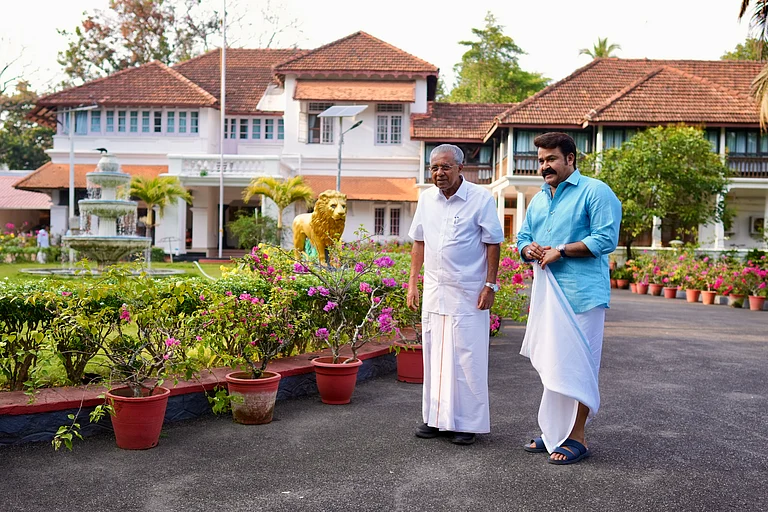In this modern digital age, the combination of social media and cryptocurrency has been made strong as a driver of knowledge, awareness, and industry growth. That subject that was previously specialized and out of reach for technologists and experts is now mainstream because of how social media sites allow information to spread instantly throughout the globe. These sites, originally constructed as social networking and entertainment platforms, have become two of the most critical education and awareness vehicles in financial technology today. Cryptocurrency, because it is a complex and ambiguous phenomenon, will be greatly helped by this new environment. Social media's power to demystify ideas, encourage discussion, and create communities has made it a valuable ally in developing public opinion and engagement in the digital economy.
Social Media as Gateway to Learning
For many, the initial introduction to cryptocurrency is not through academic study or from the banking community. It starts with a brief video segment, a forwarded article, or a conversation group that one stumbles upon on a social forum. That's the role of social media as a gateway to learning. Blockchain's basic concepts, mining, digital wallets, and decentralized finance are presented in innovative, accessible formats that resonate with broad interest. Complex descriptions that would otherwise appear intimidating and technical are simplified through videos, images, and multimedia.
That accessibility is important because it reduces entry barriers. Previously, learning finance or new technologies demanded preknowledge or professional equipment access. Today, anyone desiring to learn about Bitcoin or Ethereum can master the fundamentals in a matter of minutes through skimming a feed or conversing with content producers. The continuous flow of learning material makes it so that people are no longer limited according to geography, background, or learning field. Social media thus democratizes education such that information about cryptocurrency is available to all who have internet access.
Awareness Through Conversations
Knowledge alone is not sufficient for a business as fluid as cryptocurrency. Knowledge of what is happening now, dangers, and possible prospects is equally as essential. Social media's casual format is where it excels. In contrast to books or reports, social media provides a forum for in-the-moment conversation. Gossip about regulatory announcements, market trends, or new initiatives travels rapidly along networks so people are informed.
Sites such as Twitter, Reddit, and LinkedIn, to name a few, are forums in which discussions vary from simple tutorial sections to intricate debate forums of monetary policy and scalability of blockchain. The cacophony of voices—from developers to money analysts, journalists, regulators, and hobbyists—invites an atmosphere where differing opinions exist. Such pluralism of information encourages awareness through equilibrium. While some of the conversations suggest opportunity, others suggest caution, thus presenting the whole picture where digital finance is.
The Role of the Community in Learning
Other than standalone posts and comments, the social aspect of sites comes to the forefront when implemented in learning. Groups based on blockchain- or cryptocurrency projects act as shared classrooms where users create and exchange information collectively. A novice user is able to pose questions and get answers from veteran users. Developers are typically directly engaged with such groups, providing technical updates explanations or responding to users' concerns. This peer-to-peer learning framework has one clear benefit over other conventional ways of learning: it is interactive, real-time, and experiential based.
Not only do community members exchange abstract knowledge but also inject practical insights, such as how to get digital wallets, how to avoid scams, or how to use exchanges safely. Such experiential viewpoints make learning more experiential and experiential. It also instigates accountability, and projects that are shrouded in secrecy or fail to deliver will be loudly criticized. This peer-to-peer learning model mirrors the decentralized nature of the underlying blockchain technology, where knowledge and trust are distributed and not dictated by some governing body.
Industry Development Through Engagement
Learning and awareness are valuable by-products of social media but extend even deeper into the realm of industry development. For companies, start-ups, and blockchain innovators alike, social networks are the preferred vehicles for visibility and audience. A project that otherwise would have had to incur mammoth advertising budgets or receive coverage from mainstream media can now be seen by the entire globe just by staying engaged online. Announcements, product releases, and tech updates are delivered directly to communities without middlemen and a perceived openness. This contact also makes innovation easier.
Entrepreneurs and developers are also given real-time feedback for their plans, which allows them to refine products and meet the demands of users. Crowdfunding campaigns and token offerings also usually have social platforms as a base, with the crowd rallying around something that they feel will help a cause. As the ecosystem does so, it not only teaches users about cryptocurrency but also allows the ecosystem to evolve itself through increased participation, collaboration, and use.
Challenges and Risks in Open Information
Even with all of its advantages, bringing cryptocurrency and social media together is not easy. The same attributes that make power available in these sites for learning and information—speed, openness, and reach—also risk exposing participants. Rumor spreads rapidly, and unauthenticated claims can have an effect on new entrants. The trend-oriented nature of social media has the potential to trigger speculative activity at times, in the form of people making investment decisions on the basis of trends, not on research.
Dishonest schemes and scams also use the openness of such a network to exploit people who are not prudent or knowledgeable. All this is a pointer to the need for responsible contribution. Individuals need to develop an ability to critically analyze information, check sources, and separate actual analysis from fake information. Operators in the industry, teachers, and moderators within communities are responsible for propagating correct information and practicing best practices. Social media education is not merely about unmasking blockchain data but also about education on digital literacy and critical thinking within the process of making economic choices.
The Future of Education and Awareness
Social media's impact on cryptocurrency education and awareness in the future can only intensify.
Since there are more and more blockchain applications being transitioned into fields like supply chain management, healthcare, governance, and environmental issues, there will be an even greater requirement for global knowledge.
Social media, through the power of making and sharing information easy and immediately, will be at the heart of such activity. Cross-overs between regulators, business professionals, and teachers may also be observed to construct formal campaigns that include professional advice with open-ended community discussion. Such schemes might curb disinformation while maintaining the freedom that makes such networks dynamic learning spaces. In the meanwhile, as technology continues to advance, learning genres on social media will further grow. Short movies, live interactive sessions, podcasts, and online forums shall emerge as more engaging methods of learning about cryptocurrency.
The next generation might not study from books but through interactive conversations and online demonstrations carried out in real-time. In this regard, the intersection of social media and cryptocurrency is an extension of a larger shift in how education itself is being delivered in the decentralized age.
Conclusion
Social media and cryptocurrency's intersection is far from a trend; it's a reflection of the way individuals teach, communicate, and engage in the digital economy. With diminished knowledge barriers, providing conversation, community building, and driving business growth, social platforms have emerged as key tools for informing public awareness of blockchain technology.
Despite worries over misinformation and deception persisting, social media's ability to educate and enlighten far outweigh the risk when used responsibly. This confluence of communication and technology guarantees that cryptocurrency is not only available for experts but for everybody, a step towards an educated and equitable financial future.





















